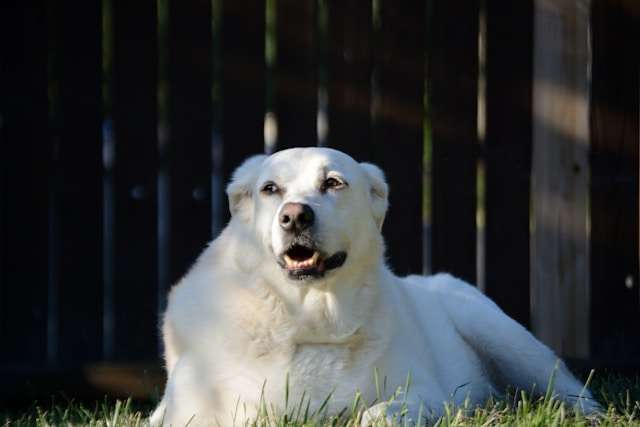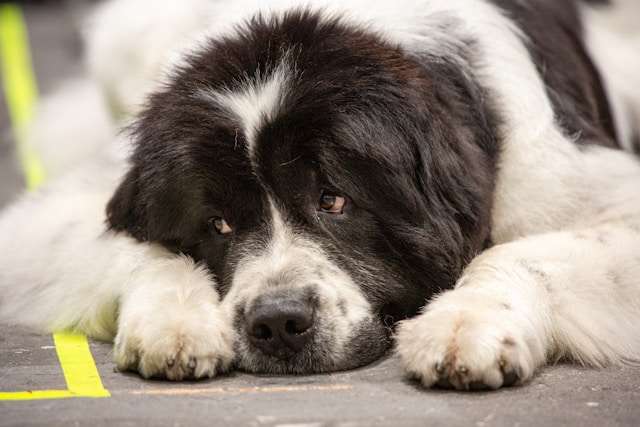Cavalier King Charles Spaniel: Pros and Cons Every Dog Lover Should Know

The Cavalier King Charles Spaniel is a favorite among dog lovers for its friendly demeanor and affectionate nature. Whether you’re considering adding this adorable breed to your family or simply curious about its traits, weighing the positives and challenges is essential.
In this post, we’ll unpack the pros and cons of owning this delightful companion, helping you understand if it fits your lifestyle. If you’re deciding among breeds, you might also find our Dog Breed Guide: Find Your Perfect Companion helpful for exploring other options.
- Cavaliers are affectionate, great companions, and love being close to their owners.
- They fit well in families due to their friendly and gentle nature.
- Regular grooming is needed to keep their coat healthy.
- They can have health concerns, like heart issues; vet care is essential.
- Cavaliers enjoy moderate exercise, ideal for less active owners.
Learn more about other Cavalier-related breeds in the Cavapoo Size Guide for additional insights.
Table of Contents
Overview of the Cavalier King Charles Spaniel
- Cavaliers are affectionate, great companions, and love being close to their owners.
- They fit well in families due to their friendly and gentle nature.
- Regular grooming is needed to keep their coat healthy.
- They can have health concerns, like heart issues; vet care is essential.
- Cavaliers enjoy moderate exercise, ideal for less active owners.
The Cavalier King Charles Spaniel is one of the most beloved companion dogs worldwide. Known for their affectionate nature and elegant appearance, they have a rich history and charming traits that make them stand out. Here’s a closer look at their origins and distinct characteristics.
History and Origin
The roots of the Cavalier King Charles Spaniel trace back to 16th-century England, where they gained popularity as affectionate lapdogs. This breed derived its name from King Charles II, a devoted admirer of the small spaniels who ensured their presence in his court. During this era, they often appeared in portraits, symbolizing loyalty, companionship, and nobility.
In the late 17th century, their appearance shifted due to interbreeding with flat-nosed breeds such as Pugs, resulting in the modern King Charles Spaniel. However, in the 1920s, a breed enthusiast, Roswell Eldridge, sought to revive the original flatter-faced type, leading to the emergence of what we now know as the Cavalier King Charles Spaniel. You can learn more about their historical background from sources like the American Kennel Club’s breed history or explore additional details on Britannica’s Cavalier description.
Physical Characteristics
Cavalier King Charles Spaniels are small, with an average weight of 13 to 18 pounds and a height ranging from 12 to 13 inches. Their silky, medium-length coat is one of their most striking features, requiring regular grooming. They come in four official colors:
- Blenheim: A rich chestnut and white combination, often with a distinctive marking on the forehead.
- Tricolor: Black, white, and tan markings.
- Ruby: A solid, deep red color.
- Black and Tan: Glossy black with tan highlights.
Their large, round eyes are another defining trait, radiating warmth and gentleness. They have a slightly domed head and long, floppy ears, making them irresistibly endearing. You can dive deeper into their appearance and traits by checking the Cavalier breed guide.

Photo by Dmitry Ovsyannikov
Understanding the charm and history of the Cavalier King Charles Spaniel helps dog owners appreciate what sets them apart. Their beauty and sociability make them a favorite for families and individuals alike. They can be an excellent choice if you’re considering a smaller, affectionate canine companion. For more guidance on related breeds like the Cavapoo, explore our Cavapoo Size Guide.
Pros of Owning a Cavalier King Charles Spaniel
The Cavalier King Charles Spaniel is cherished worldwide for its loving nature, adaptable personality, and ease of care. Whether you’re a first-time dog owner or adding to your pet family, this charming pup has plenty to offer.
Affectionate Nature
These dogs are known for their unwavering love and devotion. Cavaliers thrive on companionship, making them excellent lapdogs. Do you appreciate a pet always wanting to snuggle or be beside you? This is the breed for you. Their cheerful demeanor ensures they bring warmth and smiles to any home.

Photo by Val Burger
Good with Children and Other Pets
Cavaliers have a calm and balanced temperament, making them excellent with children. They are patient yet playful, forming close bonds with kids. Their gentleness extends to other pets, including cats and even smaller critters. If you have a big family with pets, this breed integrates seamlessly, adding to the harmony.
Trainability
Cavalier King Charles Spaniels are intelligent and eager to please. This combination makes training straightforward, even for novice handlers.
Basic commands like “sit” or “stay” are easily mastered with positive reinforcement techniques. They also tend to do well in obedience classes or even agility courses. Training a Cavalier isn’t just rewarding—it’s fun!
In our Dog Training Tips for Small Breeds, you can explore more tips on practical dog training with breeds like Cavaliers.
Adaptability
Whether in a cozy apartment or a sprawling suburban house, Cavaliers adjust beautifully to any environment. Their size and moderate energy levels make them suitable companions for city dwellers, while their playful nature delights those with yards. A simple daily walk or some indoor play will keep them content.
For families seeking a dog breed that can easily fit into various lifestyles, Cavaliers remain a top choice. Check out breeds with similar flexibility in our Top 10 Most Popular Choices for Families.
Health and Lifespan
Cavaliers typically have a lifespan of 9–15 years. While primarily healthy, there are breed-specific issues like mitral valve disease and hip dysplasia to watch for. Regular checkups and a proper diet can enhance their quality of life. Want to make sure you’re providing the best food options? Take a look at Dog Nutrition Plans for more insights.
In summary, the Cavalier King Charles Spaniel suits a range of owners. Their affectionate nature, compatibility with families, and adaptability are just a few of their standout qualities.
Key Takeaways
Learn more about other Cavalier-related breeds in the Cavapoo Size Guide for additional insights.
Cavalier King Charles Spaniel: Questions Answered
What are the pros of owning a Cavalier King Charles Spaniel?
Cavaliers are friendly, affectionate, and great with kids. They’re easy to train and adapt well to various living spaces, including apartments.
What are some potential cons of getting a Cavalier King Charles Spaniel?
They’re prone to health issues like heart disease and require regular grooming. They can also develop separation anxiety if left alone for long periods.
Are Cavaliers good for first-time dog owners?
Yes, their calm demeanor and manageable size make them a great choice for beginners. They’re eager to please and responsive to training.
How much exercise does a Cavalier King Charles Spaniel need daily?
They need moderate exercise, around 30-60 minutes a day. Short walks and playtime work well for this breed.
Do Cavaliers shed a lot?
Yes, they do shed moderately throughout the year. Weekly brushing helps control shedding and keeps their coat healthy.
What’s the lifespan of a Cavalier King Charles Spaniel?
On average, they live between 10-14 years, dependent on lifestyle and health management.
Are Cavaliers good with other pets?
They’re very social dogs and get along well with other pets when properly introduced.
For additional care tips, check out 5 Essential Tips For Raising A Happy Maltese Dog. Although written for Maltese, some advice may apply to Cavaliers too.
What kind of grooming do Cavalier King Charles Spaniels need?
They need regular brushing to prevent mats and tangles. Routine ear cleaning and nail trims are also necessary.
Are Cavaliers prone to specific health problems?
Yes, common issues include mitral valve disease, hip dysplasia, and syringomyelia. Regular vet check-ups are crucial.
How are Cavaliers around children?
They’re excellent with kids due to their gentle and patient temperament, making them popular family dogs.
For more dog breed insights, visit Discover The Best Types For Every Lifestyle.







One Comment